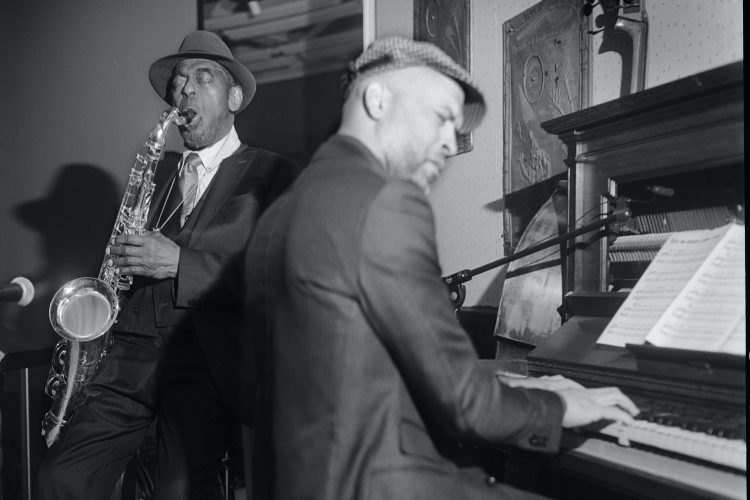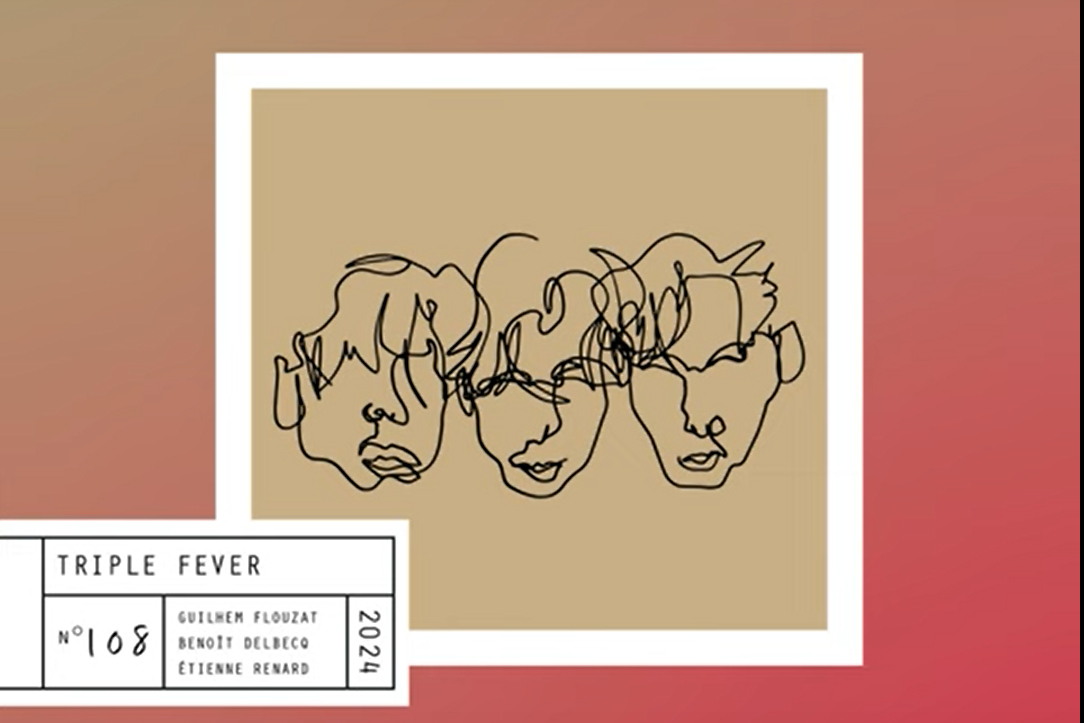Review: Archie Shepp & Jason Moran’s ‘Let My People Go’
|
Getting your Trinity Audio player ready...
|
Albert Murray once noted that “the blues is not the creation of a crushed-spirited people [but rather] the product of a forward-looking, upward-striving people.” Throughout his career, Archie Shepp has explored the connection between the blues and aspiration for a brighter future. He’s done so significantly by branching the sonic qualities of the form to its subsequent historical descendants. In the mid-1960s, Shepp marked a clear trail from the form to the developing avant-garde. “Rufus (Swung His Face At Last to the Wind, Then His Neck Snapped)” and “Call My By My Rightful Name” as much castigated lynchings and general degradation as they dreamt of a day without either. Attica Blues (Impulse! 1972) drew the musical line further by including ideas from funk and poetry to address government-sponsored inhumanity. The rise of sampling brought associations to rapping and hip hop on Phat Jam in Milano (Dawn of Freedom, 2009) and Ocean Bridges (Redefinition Records, 2020). The legendary saxophonist’s duet album with Jason Moran, Let My People Go (Archieball, 2021), fits comfortably within this backdrop. However, it also flips the approach taken by these earlier recordings.
Captured across two live performances from Paris’ 2017 Jazz à la Villette festival and Mannheim, Germany’s 2018 Enjoy Jazz Festival, Let My People Go does not list a single original composition among its tracks. Given the freedom both Shepp and Moran retain in their improvisations, this distinction is primarily a formality. But one that is a significant focal point nonetheless. The origins of these songs are found in old spirituals and standards. While neither artist is a stranger to these tunes, the fact that they serve as the basis of an entire album by two who are continually looking for new methods of musical expression is telling. Instead of emphasizing the path that leads from the past to the present, it suggests looking first at the present then studying the past to seek a new way forward. With this focus in mind, Moran is an inspired choice as Shepp’s partner; his projects like Fats Waller Dance Party and his sideman work with elder statesmen of music like Charles Lloyd have to some extent explored these ideas as well. But the blues is the glue that holds together the entirety of the album’s proceedings.
With “Sometimes I Feel Like a Motherless Child,” Moran sets a contemplative landscape over which Shepp’s iconically nasal sounding soprano provides a narration reflective of the song’s lyrics, tearful but not entirely mired in despair. As time advances, the pianist gives glimmers of promise even with the occasional discord. His reference to “Lush Life,” even as the song appears later on the album, is inspired as it suggests that even in “the finer life” sought, struggles may remain. Moran’s contemporary phrasing on the track beautifully complements Shepp’s cries of ancestors’ past. Interestingly, the piece hits its highest moment when the saxophonist places his horn aside. By singing like an old blues crooner, Shepp reflects on the loss, pain, and sacrifice he and so many others have seen and experienced during life even as he asserts there is perhaps hope for one who remains a “true believer.”
On “Go Down Moses,” Moran provides a left-hand heavy grounding that eventually builds from a sound of ominousness to one of pride and strength. Frustration with the status quo hits a boiling point. Throughout, Shepp weaves around the melody but often returns. Yearning to be free but always pulled back. With Moran’s solo, new peace is sought with a brighter future. Shepp’s soulful vocals are assured yet still concerned whether, after struggling against such extreme adversity, if the promised time has finally arrived. Even after Pharoah let the people go, there is still a long and tiring voyage through the desert.
The standards remind the listener that Monk, Ellington, Strayhorn, and Coltrane were fellow travelers on the road to equity. Particularly poignant in this regard is the inclusion of “Wise One.” The duo could have chosen from many now standards penned by Shepp’s hero, friend, and colleague, whether exploring sheets of sound or traveling interstellar space. Instead, the choice of “Wise One” seems intended to tie “old negro spirituals” to “newer jazz standards.” On the original album containing the piece, Crescent (Impulse!, 1964), Coltrane’s deep meditations on the blues allowed him to place one foot in his music from before and one in the music – specifically A Love Supreme (Impulse!, 1965) – yet to come. It also found him increasingly examining the meaning of life and the universe. Shepp and Moran give it a faithful yet individualized rendition.
Let My People Go is an album that can be developed only by two masters of their craft. In drawing connections between history and current events, Archie Shepp and Jason Moran show the transcendent power and beauty of music. Although ideas may change slightly as the years pass and new cultural norms and technologies emerge, some truths remain consistent. Among them, the continued power of spirituals and the blues in the search for equality.
Tracklist: 1. Sometimes I Feel Like a Motherless Child, 2. Isfahan; 3. He Cares; 4. Go Down Moses; 5. Wise One; 6. Lush Life; 7. Round Midnight.
Personnel: Archie Shepp (soprano saxophone, tenor saxophone, vocals), Jason Moran (piano).



